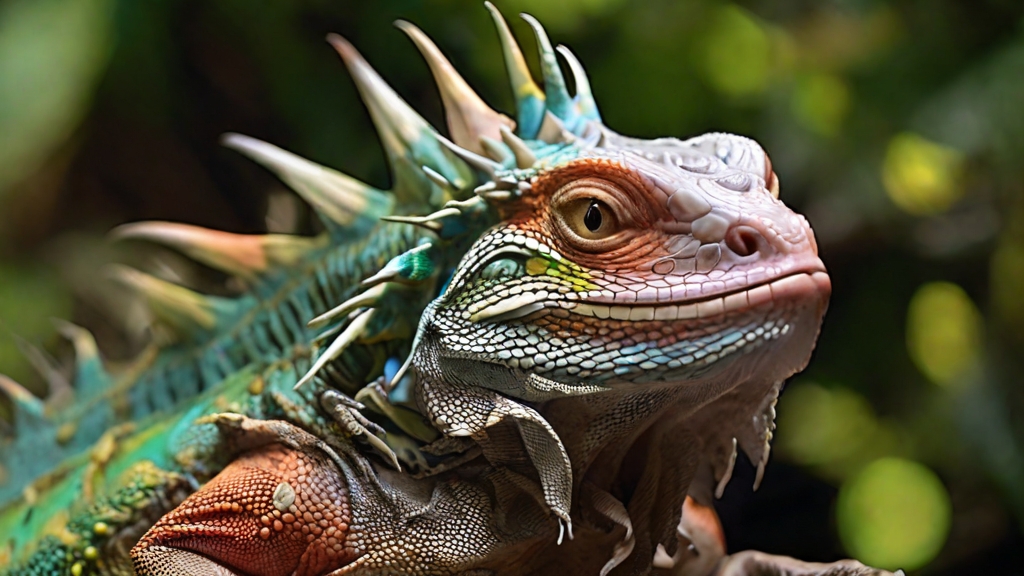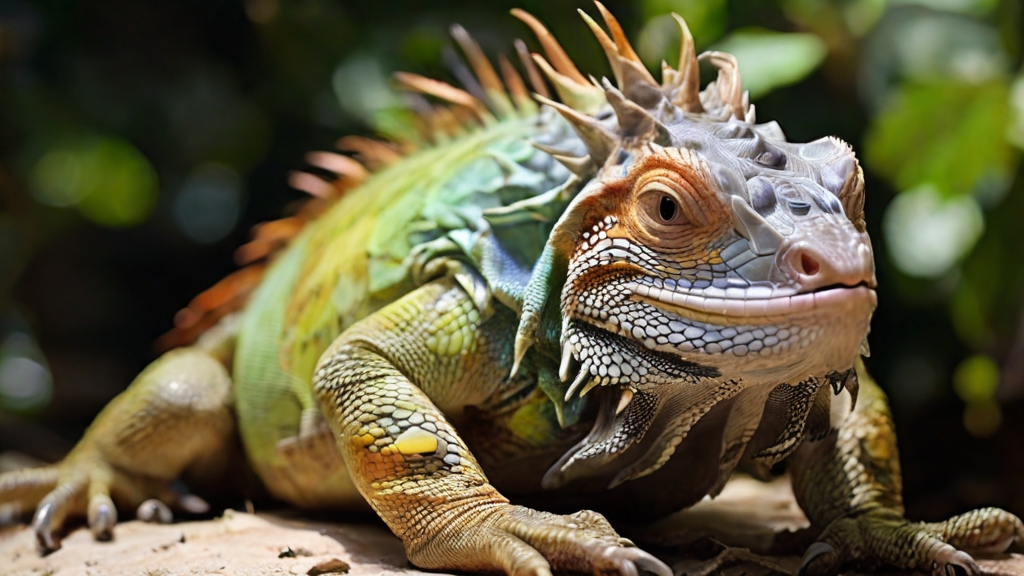Brumation is a term often used in the reptile world to describe a period of dormancy or semi-hibernation that some cold-blooded animals, like iguanas, go through. It’s similar to hibernation in mammals but has distinct differences. Understanding brumation and how to care for your iguana during this time is crucial to ensure their health and well-being.
What is Brumation?
Brumation is a natural biological process that occurs in reptiles, including iguanas. It’s a period of reduced activity, metabolism, and appetite, typically during colder months. Think of it as your iguana’s way of conserving energy to survive when food is scarce.
Signs of Brumation
Recognizing the signs of brumation is essential to provide the right care. These signs may include lethargy, decreased appetite, and a preference for a cooler environment. Your iguana may also spend more time basking under its heat lamp.
Why Do Iguanas Go Into Brumation?
Iguanas, like many reptiles, go into brumation to conserve energy and survive harsh environmental conditions. It’s a natural response to the changing seasons and the drop in temperatures. In the wild, this helps them stay alive when food is scarce.
Preparing for Brumation
Before your iguana enters brumation, you should ensure they are in good health. A visit to the vet is advisable to rule out any underlying health issues. Also, make sure their enclosure is clean and secure, with proper heating and lighting.
How to Care for a Brumating Iguana
During brumation, your iguana will require minimal care. Keep their enclosure clean, maintain a stable temperature, and provide access to water. Avoid handling them unless necessary, as they prefer solitude during this time.
Monitoring Your Iguana
Regularly check on your iguana to ensure they are maintaining a healthy weight. If you notice any concerning changes, consult your veterinarian for guidance.
Feeding During Brumation
Iguanas eat very little or not at all during brumation. Do not force-feed them. Offer small amounts of fresh water and leafy greens if they show any interest, but do not be alarmed if they decline.
Ending Brumation
As temperatures rise and the days get longer, your iguana will naturally come out of brumation. Slowly reintroduce them to their regular diet and activity levels.
Common Myths about Brumation
There are several myths surrounding brumation, such as it being a sign of illness or that it requires intervention. It’s crucial to dispel these myths and understand that brumation is a natural and necessary process.
Conclusion
In conclusion, brumation is a natural phenomenon in iguanas and many other reptiles. Understanding its purpose and how to care for your iguana during this time is vital for their well-being. Remember, patience and minimal interference are key to helping your iguana through this phase.
Frequently Asked Questions
What should I do if my iguana refuses to eat during brumation?
During brumation, iguanas often eat very little or not at all. Do not force-feed them. Offer water and leafy greens, but if they refuse, it’s normal. Monitor their weight and consult a vet if you’re concerned.
Is brumation a sign of illness in iguanas?
No, brumation is a natural process. It’s not a sign of illness but rather a response to environmental changes and the need to conserve energy.
Can I handle my iguana during brumation?
It’s best to avoid handling your iguana during brumation. They prefer solitude and minimal interaction during this time.
How long does brumation typically last in iguanas?
The duration of brumation can vary, but it usually lasts for a few weeks to a few months, depending on environmental conditions and individual factors.
Do I need to change my iguana’s habitat during brumation?
Ensure their habitat remains clean and maintains a stable temperature. Otherwise, minimal changes are needed during brumation.
In conclusion, understanding and caring for your iguana during brumation is essential for their well-being. It’s a natural process, and with the right knowledge and patience, you can ensure your scaly friend remains healthy and happy throughout this phase.




